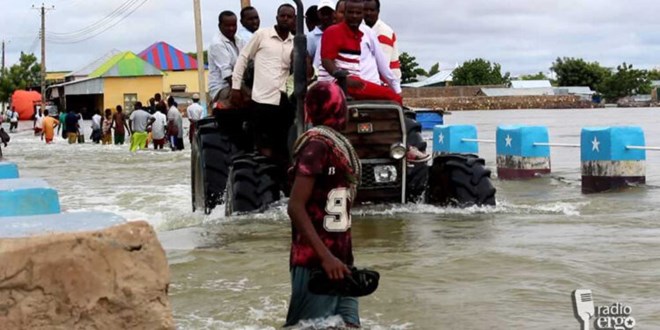
Wednesday August 23, 2023

Kaydka Ergo
Nur Ahmed Mohamed and his family of 10 have been struggling to get enough to eat since prices of basic food items surged in the northern coastal village of Bareda, following the collapse of a bridge providing a key access route.
“If my family get breakfast they are likely to miss out on lunch because we can’t get all three meals now and it’s also very hard to medical items,” Nur said.
On 29 June high ocean tides destroyed the foundations of the bridge that connects Bareda and some other remote coastal villages across the lagoon to the district town of Alula in Puntland’s Bari region.
As a result, the cost of supplies has escalated, with flour rising from $30 to $50 and rice from $35 to $60.
Vehicles using the road bridge were able to reach Alula in about four hours, whilst alternative routes could take up to two days with cars often getting stuck in sand.
“We are poor people and we’ve been working in the rural areas that have been badly hit by the drought. Whenever there’s rain people encounter floods, there are always hardships here. Now commodities are too expensive and the people are poor,” Nur complained.
The bridge collapse has also affected Nur’s income from selling the frankincense he harvests in the rural areas to sell to buyers in Bosaso. He normally earns $200-$250 from the sales but has not been able to transport it out of Bareda.
He has 70 feeble goats left that survived three years of failed rainy seasons but they cannot fetch anything in the market. He has no other skills to earn an alternative income and reckons that 500 others who rely on frankincense sales are similarly affected.
Fishermen like Ali Osman Abdulle, who lives in coastal Geesalay, has not had any income since the bridge collapsed as he has bene unable to transport any fish for sales in Bosaso.
He has not been able to get out to sea much due to the high seasonal tides that risk sinking his small boat and is worried about providing for his family of eight children.
“Our work has stopped and that is our main problem. The lack of income is a concern, and there are high tides in the ocean,” said Ali, who has been fishing for 15 years.
They received some flour, rice, and sugar from their relatives in Alula on 25 July and are eking it out by cooking one meal in the evening. They are unable to afford the high prices of food due to the supply shortage caused by the bridge collapse.
The commissioner of Alula district, Omar Osman Said, said they had 300 workers and 20 trucks ready to start working soon to restore the bridge. He hoped the authority could raise enough funds to complete the work.
“Our plan is to work with the people to reconstruct the bridge by launching a volunteer project for people so we can get the road back. If we get the road back, this area is the most resourceful place, our main concern is the road. Products from this area can be transported to markets in other areas. We have many things to do but that is a major priority for us,” he noted.
The bridge was built by the military government about 30 years ago and has had only periodic repairs.